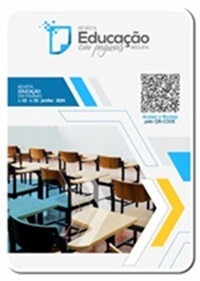The study of interlingua in the learning of French as a Foreign Language at Lhanguene Secondary School in Maputo
DOI:
https://doi.org/10.22481/redupa.v3.14834Keywords:
interlanguage, transfer, linguistic interference, error in FL learningAbstract
Abstract
This article emerges from the study on the occurrence of interlanguage in the learning of French as a foreign language (FLE) by Mozambican learners who have Portuguese as their mother tongue (L1) or second language (L2). The aim of this study is to describe occurrences of negative transfer from mother tongue (L1) or second language (L2) habits, which are the source of negative linguistic interferences observed in the learners' interlanguage. Drawing from some approaches to communicative and cognitive paradigms, we find that learners' communicative competence needs to be analyzed not only in terms of grammar but also in terms of the effectiveness of learners' communication and how they use the language in interaction. On the other hand, the cognitive paradigm is another important aspect to consider, as it focuses on the cognitive learning processes, such as attention, memory, knowledge transfer, etc. Based on these two paradigms, we will develop our study regarding the issue of interlanguage in the initial phase of French foreign language (FLE) learning. As is known, in the initial stages of language learning, communicative competence is emphasized as the basis for language acquisition, and learners' attention and memory also play a crucial role in learning. As methodology, we apply the analysis of compositions written by learners in an ethnographic classroom situation for the study. Learners typically go through a series of stages as they acquire proficiency, with this being an important phase of learning development. Errors in interlanguage observed are not intentional but represent attempts at communication by learners.
Keywords: interlanguage, transfer, linguistic interference, error in FL learning.
Downloads
References
Adjemian O. (1976), on the nature. Of interlanguage system. In Language Learning.
Alvarez Maria L (2002), Transferência, a interferência, e a interlingua no ensino de línguas próximas. Na. 2 conger bras. H.
Beveniste, E. (1974). Problème de Linguistique Générale. II Editions Gallimard, REVER.
Besse, H Porquier R (1991), Grammaire et didactique des lingues. Paris. Hattier, coll. LAL. Canale, M. e Swain, M. (1980). Theorical Bases of Communicative Approches to Second Languange Teaching. Applied Linguisties.
Corder, (1967); The Significance of Learner’s Errors; International Review of Applied Linguistics v: p.161-169.
Corder (1988- 1999), Error Analysis and interlanguage. Londonː Oxford University Press.
Corder, S. (1967 - 1980) Signification of Learners: Erro, Error. Analyses Perspectives on Second Language. Acquisition. Londonː Longmen Group Limited.
Cruz, M, I. O, B (2001) Do dinamismo à fossilização. Inː Estágios de interlinguaː estudo longitudinal centrado na oralidade de sujeitos brasileiros aprendizes de espanhol. Tese de Doutoramento. Campiras.
Ellis, R (1997) Second Language Acquisition. New York ː Oxford University Press.
E, Rod; (1995); Understanding Second Language Acquisition; Oxford: Oup
Gargalo (1973) Análisis Constrastivo, Analisis de Errores e Interlíngua em El Marco de la Linguística Constrastiva. Madridː Ed.Sintesis.
Klaus, V. (1995). L’Interlangue, La Langue De L’apprenant. Traduit De L’allemand Par Jean-Michel Broche Et Jean-Paul Confais. Toulouse: Pum.
Krashen, S. (1982). Second Language Acquisition and Second Language Learning. Oxfordː Pergamon.
Leo Van (1988), The classrroom and the language learner, London. Longman.
López.I.S. F (1991) Analisis de errores e interlingua en el aprendizagem del Espanol como língua extranjera. Col.Tisis, u. com plutense. Madrid.
Porquier, R (1977) Lʹanalyse des erreurs. Problemes et prespectve. Études de linguistique Appliquée.
Selinker, Larry; (1972); Interlanguage International Review of Applied Linguistics; V.10; p.209-232.
Selinker. L. (1972) Interlanguage. In Richards, J.Error Analyse.
Downloads
Published
How to Cite
Issue
Section
License
Copyright (c) 2024 Revista Educação em Páginas

This work is licensed under a Creative Commons Attribution 4.0 International License.






